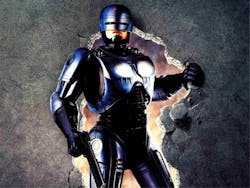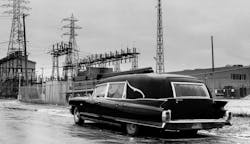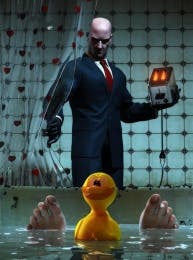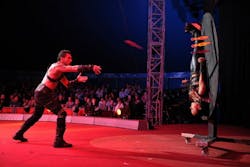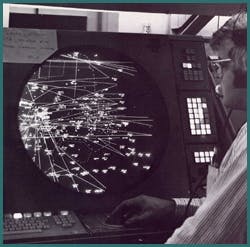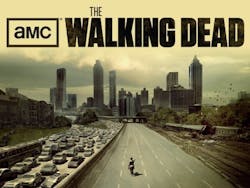Very few people truly understand what energy control center operators (ECCO) really do and the significance of what they do. I have been privileged to be part of the ConEdison energy control center and like many I did not quite know the full scope of what they do; I did however know very well that ConEdison has the most reliable and complex system, probably on earth, which basically translated that ECCOs have more challenges and difficulties compared to other operators.
To me, the ECCO is similar to “The Godfather”, I am referring to the movie of course, where our job is to allow and deny certain electric work for emergency and non-emergency purposes (of course we only deny work that poses safety/reliability concerns). The Godfather protects certain people at all cost for a cost; we however protect all people, for no cost of course.
On a serious note, our mission is to:
· Protect the public
· Protect company personnel
· Ensuring continuity of service.
· Restoring power in a safe and expedite manner when there are outages
· Provide a protected safe environment for the crews to conduct the needed load relief work to cope up with the load growth and for reliability purposes.
Before we get deep, let’s make sure that everyone realizes that we are operating an entity (electricity) that is:
·Invisible
·Travels in the speed of light
·Fatal
So basically we are protecting for something that neither us nor the crews can see, smell, touch and can kill the within cycles.
To illustrate, think about all horror movies when there is usually a hard working lady who is enjoying a nice bubble bath after a hardworking day and then a psychopath shows up behind the curtains and throws a toaster in the tub; our job is to prevent the act of throwing the toaster in the first place and in the unlikely (extremely low probability) event that the toaster was thrown in the tub, the hard working lady will not even know that something has occurred and continue on with her quality time. Basically, we are the protectors who strive everyday to ensure a safe environment for all.
Now that we know the importance of ECCOs and how utilities cannot survive without them, let’s discuss how different we are from the other people.
Being an operator for the city that never sleeps is not an easy task. Anyone from the remote ends of the world knows Times Square and how amazing those lights are that you can probably see from an airplane; I was privileged to work for a utility that supplies power to Times Square, not to mention the privilege of being part of the control center. As you all know, New York is basically New York, it is the financial capital of the world; we have Wall Street, all the museums, hospitals, the Empire State building, Chrysler building and our massive subway system. New York is a tourism hub and tourists don’t really enjoy the lack of power.
In order to get a job in the control center, applicants usually go through aptitude tests, interviews, psychological evaluations, background checks and medical exams, not your typical urine test entrance only.
The job characteristics:
·Shift work, usually 12 hour shift.
·Working long hours with the same partner, that you don’t choose and may either like or dislike working with, yet it is expected that you work well together as a team and ensure a safe environment. Being that New York is a melting pot, control center is comprised of people of different religions, accents, cultures and habits that you are forced to work with. Trust is key, where field crews trust that the ECCOs arranged a safe work location for them.
·We don’t follow the Monday to Friday schedule; we don’t even know what day it is sometimes. We miss important events in our lives and don’t get to witness key moments in our kids’ lives.
As an ECCO you have to be on top of your game, all the time, you cannot afford to wander or be distracted even for a moment. We are like air traffic controllers in the busiest airports. We work for very long hours and we may receive a call at 4 AM that a certain device or a transformer is on fire and we have to perform certain steps in a very expedite and selective manner (without having any time to go through your notes or phone a friend) to de-load and remove from service all impacted equipment and cables only, like a surgeon who only removes the problematic veins, not the whole heart, basically, not the best call that you can receive at 4 AM. At no circumstances shall your personnel life interfere with your focus.
The training process is comprehensive and covers hundreds of specifications/procedures that are vital to the operation. ECCOs are like the super computer located in the US Patent Office, where during emergency situations, we are expected to dig deep in our brains and recall from our memories certain specifications and directions.
Communication is vital and being that we interact with everyone, from within the company as well as with members from other utilities, customers, transit authorities, etc., it gets even more challenging. Different companies use different lingo and have different procedures; however, we must ensure everyone is on the same page to avoid any incidents.
We are isolated from the world, yet fully connected, in a secured room keeping the lights on, without losing any focus. Regardless of how nasty the weather is: heavy rains, hurricanes, feet of snow, fires, even a zombie apocalypse, we are still on the way, whether transportation is running or not, we are on the way to work. While everyone is directed to stay safe home, we are like the Walking Dead poster, walking alone in an opposite direction. Customers come first and nothing will stop us from reaching the control centers during the time when our customers need us the most, regardless of what Mother Nature brings on. We are truly available 24/7, 365 days; when you are sleeping we are awake and when you are awake, so do we.
In conclusion, I hope I was able to shed some light about the importance and significance of our job. We do miss important family and friends’ events; our job’s stress is high and the risk is higher. There is no room for human emotions or “honest mistakes”. The next time you see an ECCO, please realize that you are dealing with one of the utility finest and this applies to control center operators word wide, especially to those who take the extra mile to reinforce reliability, keeping the lights on and going out of their way to increase the efficiency of the process and thus reduce the cost for the company and for the customers.


